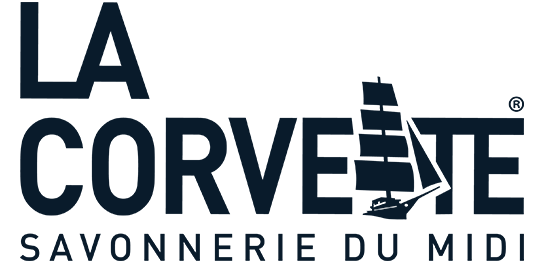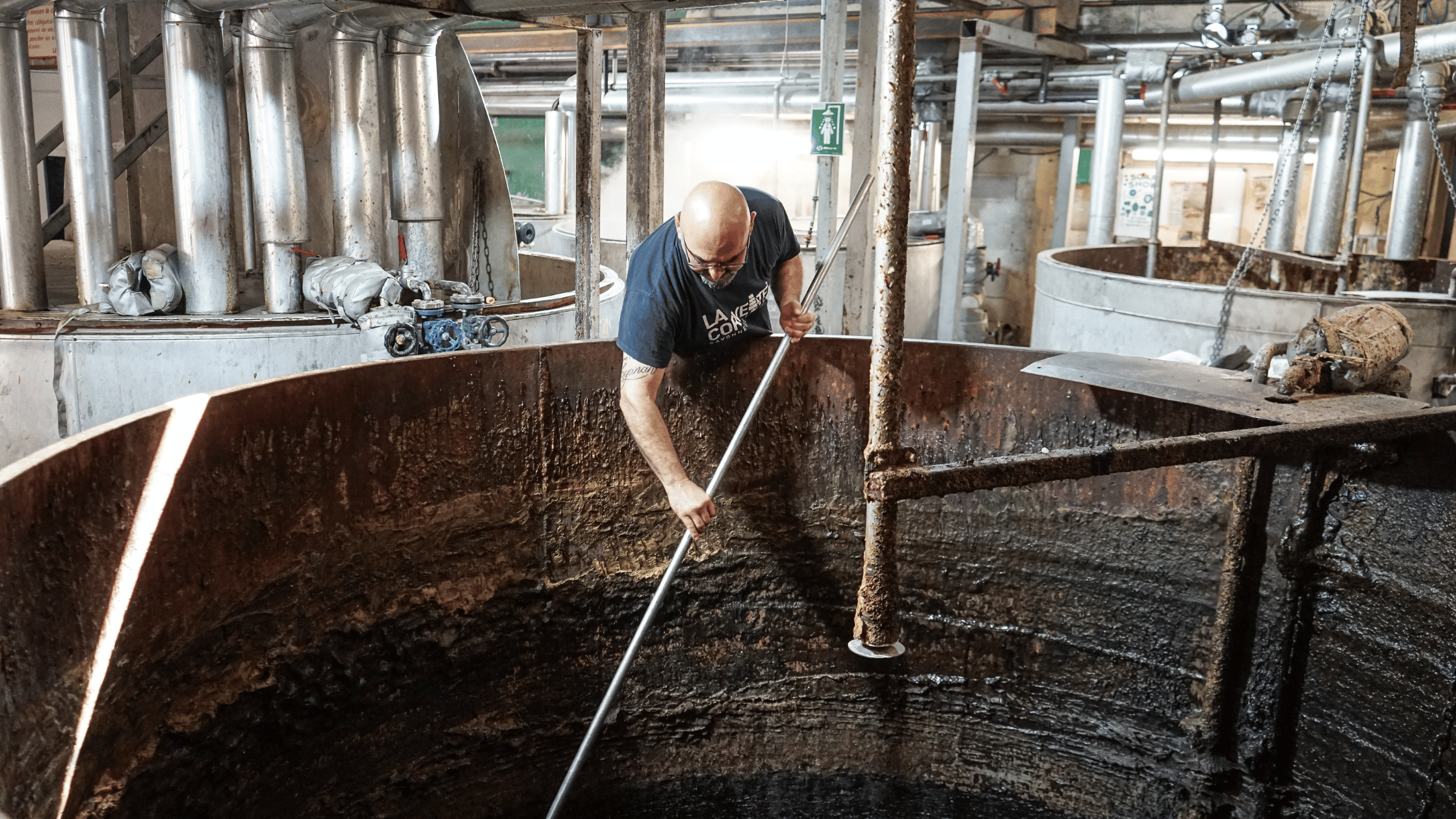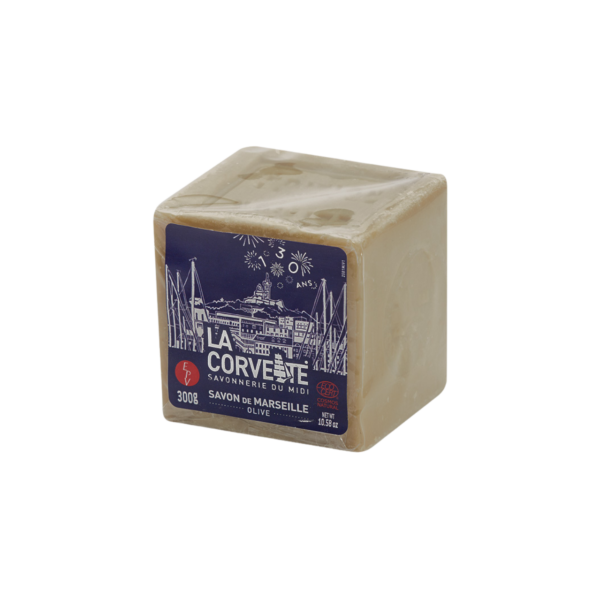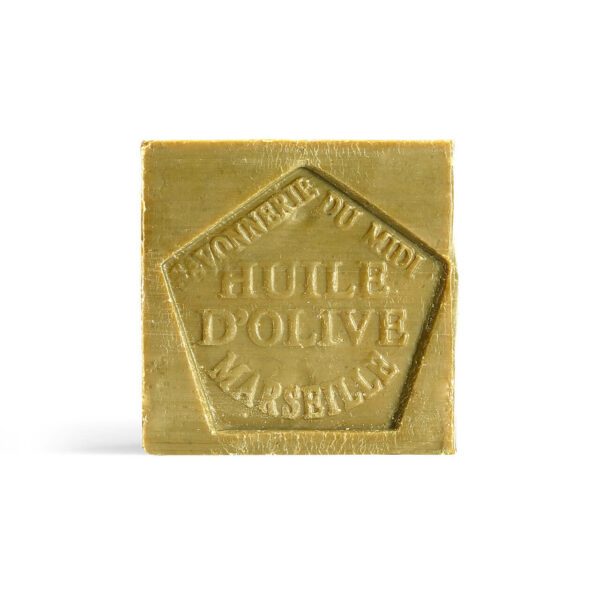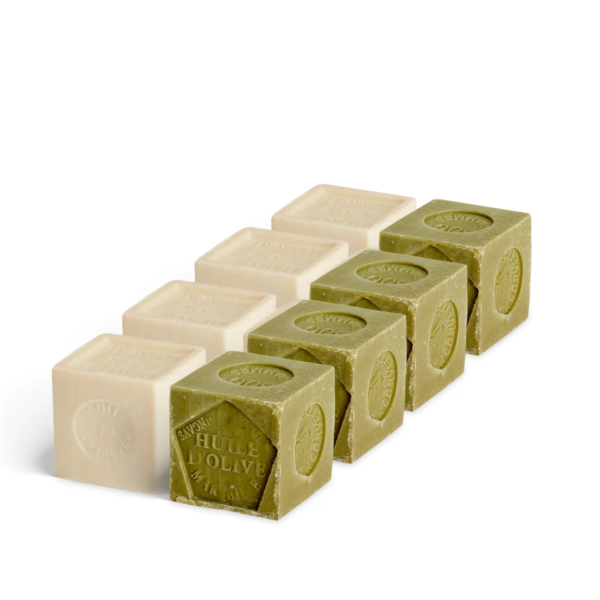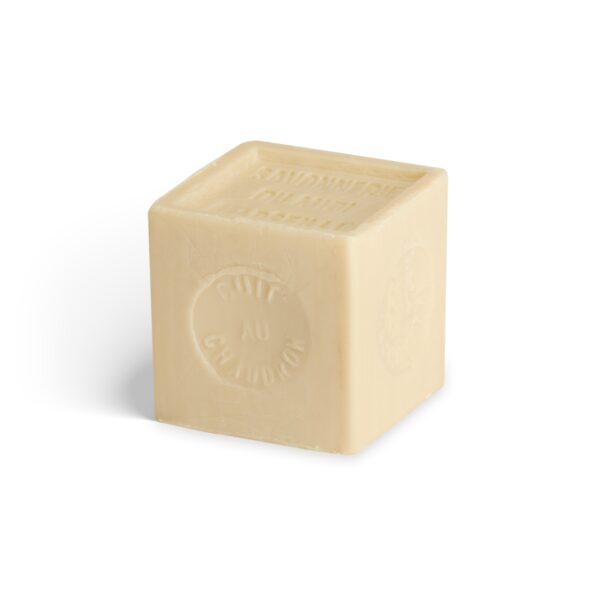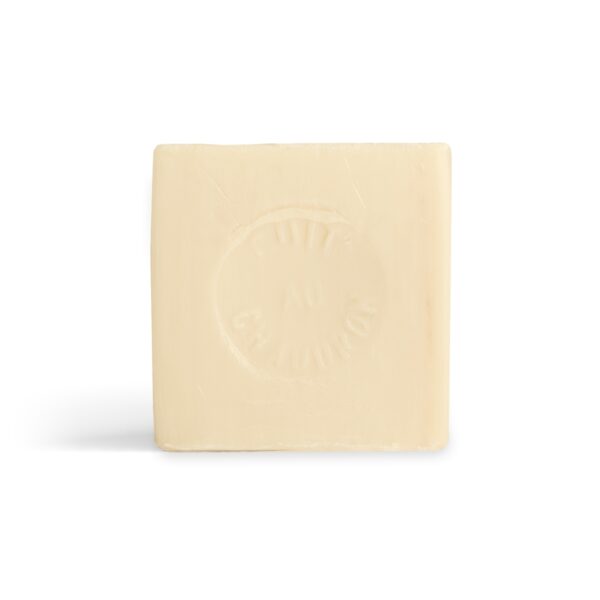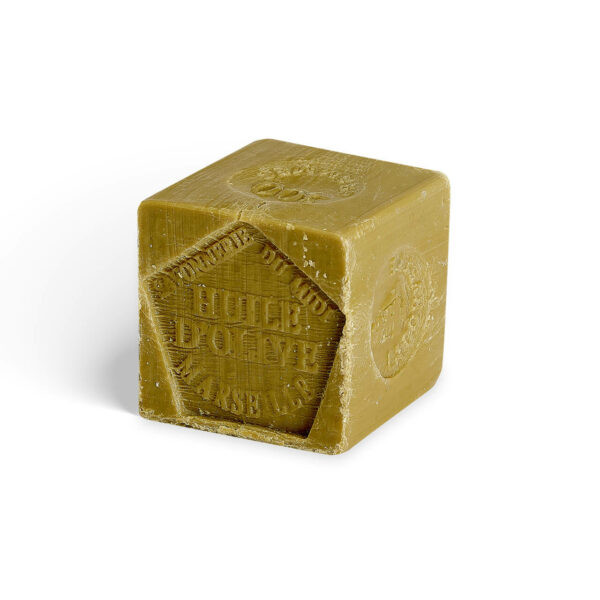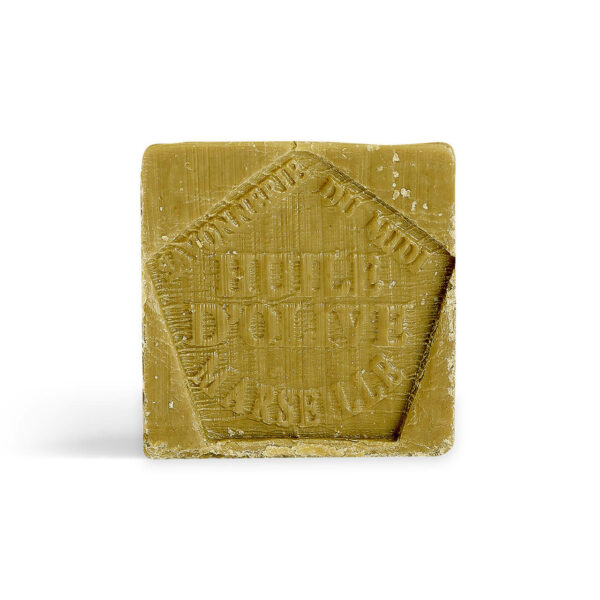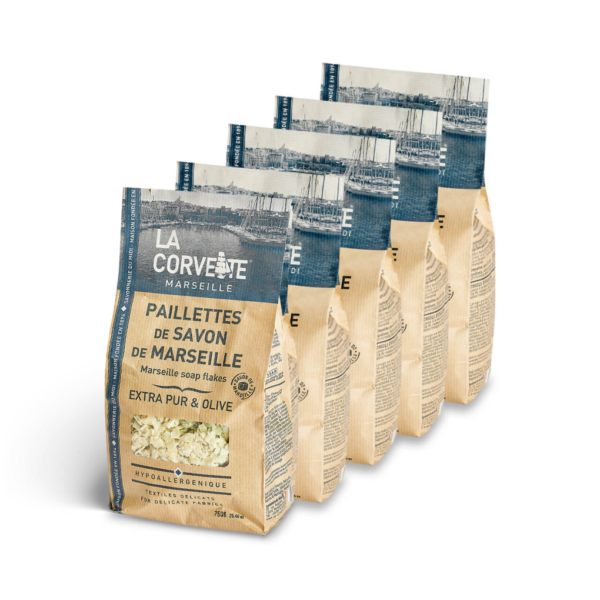The Marseille soap Marseille soap is part of our cultural and industrial heritage, and for centuries has been a testimony to French know-how in the fields of hygiene and cosmetics. Today, we unveil one of Marseille soap's most precious secrets: the ingredients that go into making it.
A composition decided under Louis XIV
Soap production in Marseille has been documented since the Middle Ages, and has been regulated by law since the 17th century. In 1688,Colbert's edict prohibited all soap factories from using animal fats. The text published by Jean Baptiste Antoine Colbert, Secretary of State, defines the four ingredients used to make Marseille soap:
- Pure olive oil;
- Soda ash, of vegetable or mineral origin;
- Water;
- Salt.
Article III of Colbert's edict laid down severe penalties for offenders: "No grease, butter or other matter may be used in the manufacture of soap, along with barrille, soda or ash; but only pure olive oil, without any mixture of grease, on pain of confiscation of the goods".
Since the reign of Louis XIV, the composition of Marseille soap has remained virtually unchanged, reflecting economic and political developments in France:
- Under Napoleon I, natural soda ash was replaced by artificial soda ash to cope with shortages of natural soda ash from Spain due to the continental blockade and the Napoleonic wars.
- From the 19th century onwards, other oils derived from maritime trade with Africa and the Middle East were used to complement or replace olive oil. Marseille's soap factories used palm, peanut, coconut and sesame oils, contributing to the prosperity of the city and its shipowners.
A rigorous manufacturing process
The specifications adopted by theUnion des Professionnels du Savon de Marseille continues to anchor genuine Marseille soap in the 21st century, guaranteeing you a healthy, natural product that respects your health, the environment and centuries of know-how. Three criteria must be respected:
- Soap must be made hot using a specific saponification and cooking process called the Marseilles process;
- It must be made in the Bouches-du-Rhône department, the historic birthplace of Marseille soap;
- The raw materials are all of plant origin (including 72% oil), and no perfumes, colorants, preservatives, animal fats or additives are used.
Our master soap-makers continue this age-old tradition, using only natural ingredients to make Marseille soap from La Corvette - Savonnerie du Midi. Made using the traditional cauldron cooking process, our genuine Marseille soaps contain only vegetable oils, soda, water and salt, and no colorants, preservatives, additives or fragrances. With no colorants, how can we explain the different colors of our ranges? ? The color of our genuine Marseille soaps depends solely on the type of vegetable oil used in their composition: a soap with a green tint, for example, contains a high proportion of olive oil.
Natural ingredients with multiple virtues
The absence of colorants, additives, fragrances or preservatives limits the risk of allergies and irritations. Genuine Marseille soap is suitable for all skin types, for daily or regular use on body, face, hair and hands.
Thanks to the soda in its composition, the PH of Marseille soap is generally close to 10. This alkaline value contributes to deep skin cleansing and exfoliating properties. The absence of ingredients of animal origin also responds to the concerns of a growing number of consumers, looking for products in line with their convictions.
The many uses of Marseille soap
Marseille soap can be used in a variety of DIY recipes, becoming the star ingredient. Indispensable in the home, it is also useful in everyday life, with a wide range of and varied uses. ! First and foremost, it's an excellent hygiene product for cleaning the body, facehair or hands. Thanks to its natural ingredients and hypoallergenic properties, it can be added to your beauty routine as a complement or replacement for your make-up remover. You can use it to wash your hands, where its antibacterial properties work wonders. Some people also use it as a complement or replacement for toothpaste, by melting fine soap shavings with a few drops of essential oil.
It's also a multi-purpose household product. You can rub a block of Marseille soap to remove stains from fabric, clothing or household linen, leaving it to act for a few hours before putting it in the washing machine. You can also melt shavings or flakes in a bucket of warm or hot water to obtain a multi-surface cleaner for floors, sinks, washbasins, WCs, bathtubs...
